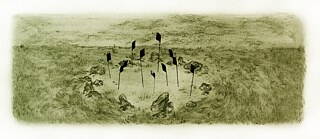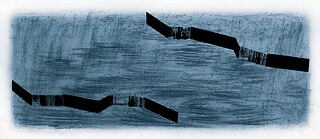The Missing Stories
I returned to the country of my birth, Afghanistan, in 2005. Expecting to encounter bitterness and suspicion after decades of conflict, I found, instead, a country full of hope and willingness to trust.
It may seem irrational for me to be sharing my positive experiences at a time like this, full of gruesome headlines. As I continue to insist that Afghanistan is a beautiful country, it appears to many that I’m painting an idealistic picture. It may even seem that I am directing people away from reality. But what may come off as far-fetched and unbelievable is in fact the truest part of my life in Afghanistan.
In the years following my return, I watched as Afghans returned from exile in neighbouring countries, women felt safe enough to take on professional spaces, and Afghan-owned businesses began to thrive.
I celebrated the abundance of nature with picnics on weekends. My Afghan friends and I enjoyed fruits and juicy kebabs with fresh bread. I attended art shows, agricultural fairs and shopped for beautiful fabrics and furniture. I met peaceful protestors and activists and felt the beauty of live music under the moonlight. I developed a new love for poetry and learned from Afghans to value quality time with loved ones.
This apparently 'radical' view that Afghanistan is a beautiful country of poets and revolutionaries is no less true than the references to conflict most people are accustomed to. I am only as idealistic as the news is pessimistic. That there were gains from over the last two decades of relative security is as true as the monumental failures. For every ugly part of what is happening in Afghanistan, I can attest to the fact that there is an intensely moving Afghan presence in the story that is equally true and continues to be set aside to suit the mainstream idea that Afghanistan is synonymous with war.
I enjoy sharing stories - like that of the award-winning girl’s robotics team and the joy in the crowds at national football tournaments. About laughter on the morning radio shows and comedy on television. When I do this however, I am met with accusations of painting a false image. I am told that there is too large a void in my description.
I want to ask: why are we complacent when war is sold as the entire story? To leave out the reality of Afghanistan’s strengths when we discuss its struggles is not equally damaging – it is instead far worse.
Right now, the conversations about Afghanistan's future are intense, widespread and urgent. In this process, the Afghan narrative is easily lost in a cloud of foreign academics alerting us to doom, speaking rarely of Afghanistan’s strength and commitment to peace. Of movements like the Helmand Peace March, for instance - a 700km journey that had the support and participation of Afghan men, women, children and disabled persons who have peacefully lobbied for an end to violence.
I understand that views can be limited, but cannot forgive the lack of effort in seeking information. The entire world cared what Afghans were feeling, who they were and what their lives looked like when the answer the world wanted to hear was: “Thank you for the aid”. It’s unacceptable to overlook the existence of these same Afghans now.
Granted, it may not be a time to hear about picnics and music concerts for some of you. It’s fine with me if it doesn’t resonate or is too far-fetched amidst headlines of dust and bullets. Even so, there absolutely must be more of Afghanistan in the narratives about Afghanistan. For those who are interested, that means at least seeking out Afghan journalists to follow what is happening on the ground, reading books and content by Afghans living in Afghanistan, and speaking to them.
You owe yourselves a more complete story than the one mainstream news provides. Go beyond the stories of aid and expenditure, soldiers and military strategy. Delve into the “almost” success story of supporting liberation and peace in Afghanistan. If it didn’t work, ask why? And what does it mean for the world’s security, if so many countries combined couldn’t make peace work in one small country? Ask many questions. Know what the risk of failure looks like to Afghans and to you. If you take the time, in your pursuit of the truth beyond the headlines, you will definitely come across a tiny glimpse of the incredible beauty I saw.
— July 2021
It may seem irrational for me to be sharing my positive experiences at a time like this, full of gruesome headlines. As I continue to insist that Afghanistan is a beautiful country, it appears to many that I’m painting an idealistic picture. It may even seem that I am directing people away from reality. But what may come off as far-fetched and unbelievable is in fact the truest part of my life in Afghanistan.
In the years following my return, I watched as Afghans returned from exile in neighbouring countries, women felt safe enough to take on professional spaces, and Afghan-owned businesses began to thrive.
For every ugly part of what is happening in Afghanistan, I can attest to the fact that there is an intensely moving Afghan presence in the story that is equally true.

I celebrated the abundance of nature with picnics on weekends. My Afghan friends and I enjoyed fruits and juicy kebabs with fresh bread. I attended art shows, agricultural fairs and shopped for beautiful fabrics and furniture. I met peaceful protestors and activists and felt the beauty of live music under the moonlight. I developed a new love for poetry and learned from Afghans to value quality time with loved ones.
This apparently 'radical' view that Afghanistan is a beautiful country of poets and revolutionaries is no less true than the references to conflict most people are accustomed to. I am only as idealistic as the news is pessimistic. That there were gains from over the last two decades of relative security is as true as the monumental failures. For every ugly part of what is happening in Afghanistan, I can attest to the fact that there is an intensely moving Afghan presence in the story that is equally true and continues to be set aside to suit the mainstream idea that Afghanistan is synonymous with war.
I enjoy sharing stories - like that of the award-winning girl’s robotics team and the joy in the crowds at national football tournaments. About laughter on the morning radio shows and comedy on television. When I do this however, I am met with accusations of painting a false image. I am told that there is too large a void in my description.
I want to ask: why are we complacent when war is sold as the entire story? To leave out the reality of Afghanistan’s strengths when we discuss its struggles is not equally damaging – it is instead far worse.
Right now, the conversations about Afghanistan's future are intense, widespread and urgent. In this process, the Afghan narrative is easily lost in a cloud of foreign academics alerting us to doom, speaking rarely of Afghanistan’s strength and commitment to peace. Of movements like the Helmand Peace March, for instance - a 700km journey that had the support and participation of Afghan men, women, children and disabled persons who have peacefully lobbied for an end to violence.
I understand that views can be limited, but cannot forgive the lack of effort in seeking information. The entire world cared what Afghans were feeling, who they were and what their lives looked like when the answer the world wanted to hear was: “Thank you for the aid”. It’s unacceptable to overlook the existence of these same Afghans now.
Granted, it may not be a time to hear about picnics and music concerts for some of you. It’s fine with me if it doesn’t resonate or is too far-fetched amidst headlines of dust and bullets. Even so, there absolutely must be more of Afghanistan in the narratives about Afghanistan. For those who are interested, that means at least seeking out Afghan journalists to follow what is happening on the ground, reading books and content by Afghans living in Afghanistan, and speaking to them.
You owe yourselves a more complete story than the one mainstream news provides. Go beyond the stories of aid and expenditure, soldiers and military strategy. Delve into the “almost” success story of supporting liberation and peace in Afghanistan. If it didn’t work, ask why? And what does it mean for the world’s security, if so many countries combined couldn’t make peace work in one small country? Ask many questions. Know what the risk of failure looks like to Afghans and to you. If you take the time, in your pursuit of the truth beyond the headlines, you will definitely come across a tiny glimpse of the incredible beauty I saw.
— July 2021






